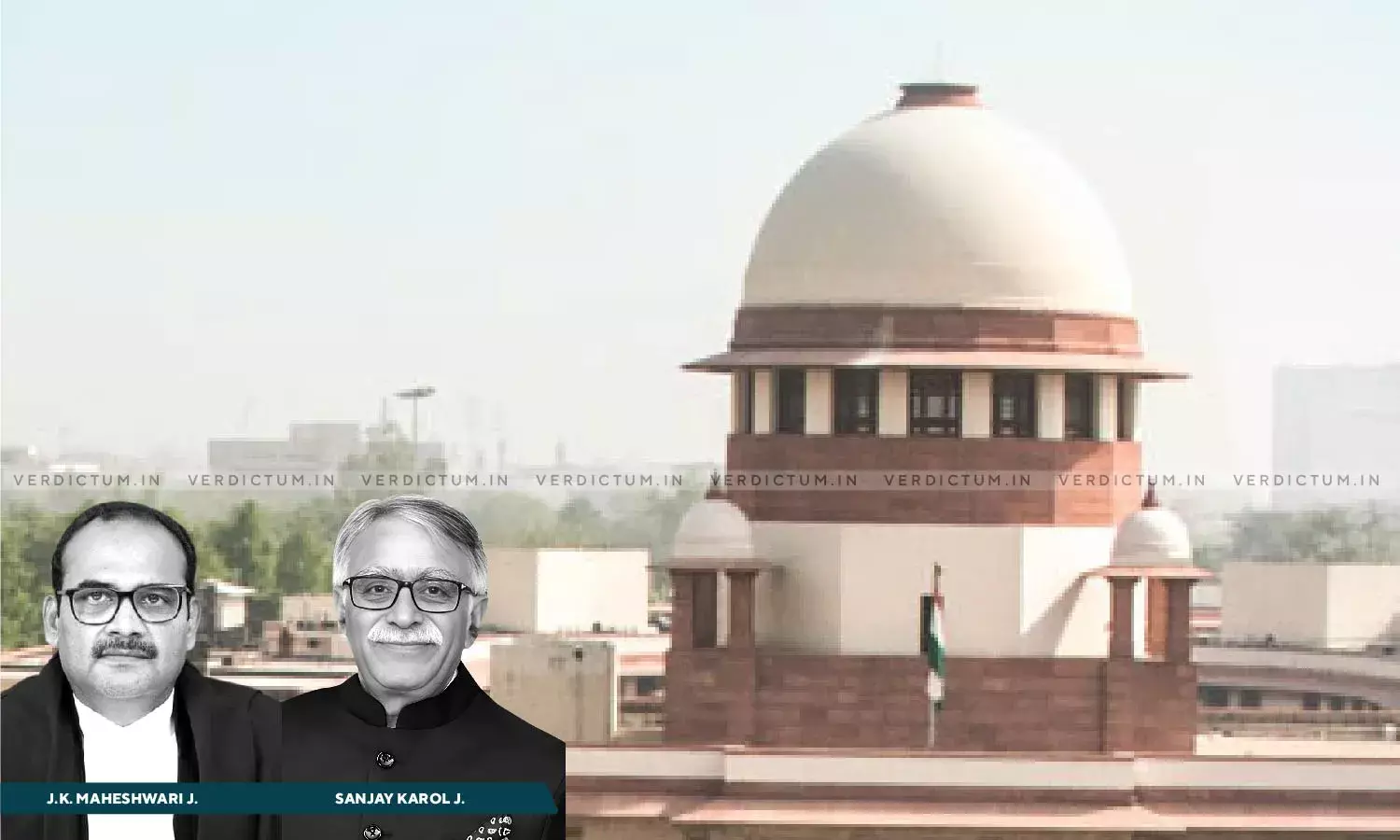Father Has No Right To Pursue Cause Of Recovery Of 'Stridhan' Given To Daughter If She Is Alive, Well & Entirely Capable of Making Decisions: SC
The Supreme Court observed that a father has no right to pursue the cause of recovery of 'stridhan’ given to his daughter when she is alive, well, and entirely capable of making such decisions.
The Bench pointed out the consistent position of law since 1985 regarding the sole authority of the woman in respect of her ‘stridhan.’ The Court stated, “The jurisprudence as has been developed by this Court is unequivocal with respect to the singular right of the female (wife or former wife) as the case may be, being the sole owner of stridhan”
A Bench of Justice J.K. Maheshwari and Justice Sanjay Karol observed, “It has been held that a husband has no right, and it has to then be necessarily concluded that a father too, has no right when the daughter is alive, well, and entirely capable of making decisions such as pursuing the cause of the recovery of her stridhan.”
AOR D. Mahesh Babu represented the appellants, while AOR Devina Sehgal appeared for the respondents.
The Court quashed the criminal proceedings against the in-laws (appellants) accused of dishonest misappropriation of the 'stridhan' belonging to their former daughter-in-law. The father (complainant) of the former daughter-in-law lodged an FIR under Section 406 of the IPC and Section 6 of the Dowry Prohibition Act, 1961 alleging that the appellants had not returned the jewellery and other items given to his daughter at the time of her marriage.
The Bench noted that the action by the father was initiated to secure the possession of the articles and ornaments after a passage of more than 20 years since the date of marriage and five years after the settlement of all marital issues.
“This coupled with the fact that there is no authorization on the part of the complainant’s daughter in his favour to initiate proceedings for recovery of ‘stridhan’ exclusively belonging to her, beckons the question on the basis of which the complainant has initiated the present proceedings,” the Court remarked.
The Court observed that the complainant's daughter had neither authorised her father to act on her behalf nor had she pursued the matter herself, which can be done under Section 5 of the Power of Attorney Act, 1882.
“The dishonest misappropriation or conversion for own use, also stands unfulfilled, for there is nothing on record to substantiate that the complainant’s daughter's former in-laws converted the ‘stridhan’ allegedly kept in their custody, for their own use, more so, when the parties in matrimony had never ever raised ‘stridhan’ as an issue either in the subsistence of the marriage or thereafter, especially during the time of settlement of all issues,” the Court noted.
Consequently, the Court held, “The charge under Section 6 of the Dowry Prohibition Act, is not made out and therefore, fails. Consequently, the only conclusion that can be drawn is that the proceedings initiated by the complainant against the present appellants have to be quashed and set aside.”
Accordingly, the Supreme Court allowed the appeal.
Cause Title: Mulakala Malleshwara Rao & Anr. v. State Of Telangana & Anr. (Neutral Citation: 2024 INSC 639)
Appearance:
Appellants: AOR D. Mahesh Babu; Advocates Shishir Pinaki, Dhanaeswar Gudapalli, Mallika Das, Amber Jain and Devjee Mishra
Respondents: AOR Devina Sehgal and Vikas Mehta; Advocates Dhananjay Yadav












